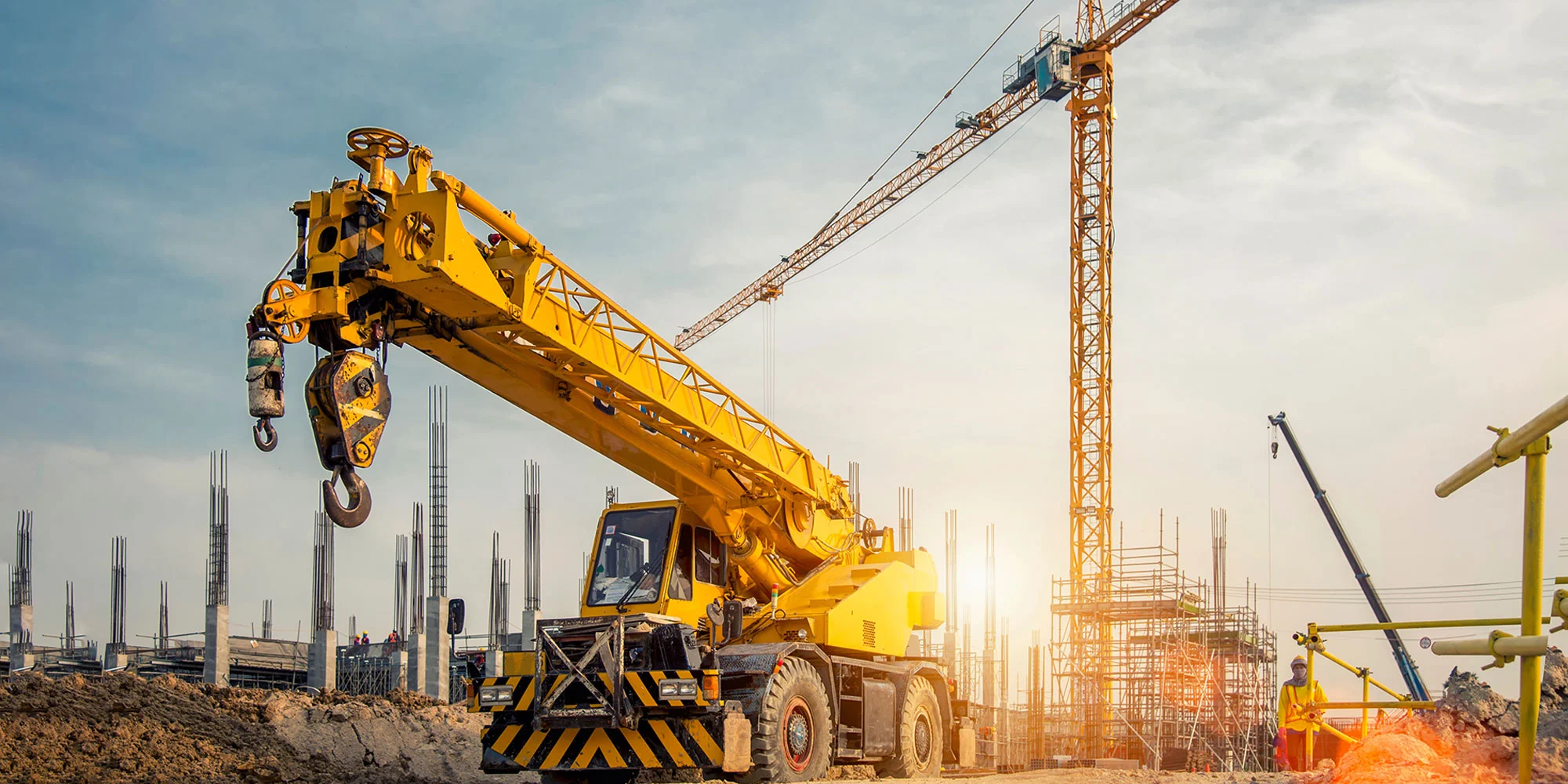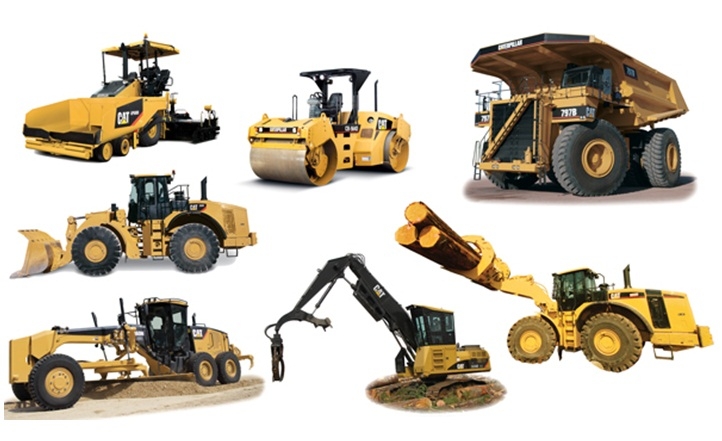Forklift Rental in Tuscaloosa AL: Versatile Lifting Solutions for Your Demands
Forklift Rental in Tuscaloosa AL: Versatile Lifting Solutions for Your Demands
Blog Article
Exploring the Financial Perks of Leasing Construction Equipment Contrasted to Possessing It Long-Term
The choice in between having and renting out building devices is pivotal for economic management in the industry. Leasing deals prompt cost savings and functional versatility, permitting companies to designate sources more successfully. In contrast, ownership features substantial lasting economic dedications, consisting of upkeep and devaluation. As professionals weigh these options, the influence on money flow, project timelines, and modern technology accessibility comes to be significantly substantial. Recognizing these subtleties is crucial, specifically when thinking about exactly how they line up with certain job needs and financial strategies. What variables should be focused on to ensure optimal decision-making in this facility landscape?

Cost Contrast: Leasing Vs. Having
When assessing the financial effects of owning versus renting construction tools, a complete expense comparison is important for making informed choices. The selection in between renting out and having can significantly influence a business's bottom line, and comprehending the connected expenses is important.
Renting construction tools normally involves reduced in advance costs, permitting companies to allocate funding to various other operational demands. Rental contracts frequently consist of versatile terms, enabling business to access progressed machinery without long-lasting commitments. This versatility can be particularly helpful for temporary projects or rising and fall workloads. Nevertheless, rental prices can collect over time, possibly going beyond the expense of possession if tools is needed for a prolonged duration.
On the other hand, owning construction equipment calls for a substantial preliminary financial investment, in addition to ongoing expenses such as insurance policy, funding, and devaluation. While ownership can cause lasting financial savings, it likewise locks up resources and might not give the very same degree of versatility as renting. Furthermore, having devices requires a commitment to its usage, which may not constantly straighten with job needs.
Eventually, the decision to own or lease should be based on an extensive evaluation of details job requirements, financial ability, and lasting calculated goals.

Maintenance Expenses and Responsibilities
The selection in between renting and owning building and construction devices not only involves financial factors to consider yet additionally incorporates continuous maintenance expenses and duties. Possessing devices needs a considerable commitment to its upkeep, which includes routine inspections, repairs, and possible upgrades. These duties can promptly collect, resulting in unanticipated prices that can stress a budget plan.
In contrast, when renting out devices, maintenance is typically the duty of the rental business. This arrangement permits professionals to avoid the economic problem associated with damage, in addition to the logistical challenges of organizing repair services. Rental contracts frequently consist of arrangements for maintenance, suggesting that specialists can focus on finishing jobs rather than stressing over devices condition.
Additionally, the diverse range of devices offered for rent makes it possible for business to pick the current models with innovative technology, which can improve efficiency and efficiency - scissor lift rental in Tuscaloosa Al. By going with leasings, businesses can read review prevent the long-term obligation of devices depreciation and the linked maintenance frustrations. Eventually, evaluating maintenance expenditures and responsibilities is critical for making an educated decision concerning whether to possess or rent out construction devices, dramatically influencing overall project costs and functional efficiency

Devaluation Influence On Ownership

A considerable factor to consider in the decision to have building tools is the influence of devaluation on total possession costs. Depreciation represents the decline in value of the devices gradually, influenced by elements such as usage, damage, and improvements in modern technology. As equipment ages, its market price decreases, which can substantially influence the proprietor's financial setting when it comes time to trade the equipment or sell.
For construction firms, this devaluation can equate to considerable losses if the devices is not used to its maximum capacity or if it ends up being obsolete. Proprietors need to account for devaluation in their monetary forecasts, which can lead to greater total expenses contrasted to leasing. Additionally, the tax effects of depreciation can be intricate; while it might provide some tax obligation benefits, these are often countered by the reality of lowered resale value.
Ultimately, the worry of devaluation emphasizes the value of understanding the lasting monetary dedication included in possessing building tools. Companies have to thoroughly assess just how typically they will certainly use the equipment and the prospective economic impact of devaluation to make an informed choice concerning possession versus renting out.
Financial Adaptability of Renting Out
Renting building tools offers considerable economic flexibility, allowing business to allocate resources a lot more successfully. This adaptability is especially critical in an industry characterized by changing task needs and differing workloads. By opting to rent out, companies can avoid the substantial capital outlay required for purchasing devices, protecting capital for various other operational needs.
In addition, leasing equipment enables firms to tailor their equipment selections to certain project requirements without the lasting commitment related to ownership. This suggests that companies can quickly scale their equipment supply up or down based on present and anticipated job needs. As a result, this flexibility lowers the threat of over-investment in machinery that may become underutilized or out-of-date gradually.
Another monetary advantage of leasing is the possibility for tax obligation benefits. Rental repayments are frequently thought about overhead, permitting for immediate tax reductions, unlike depreciation on owned and operated equipment, which is topped several years. scissor lift rental in Tuscaloosa Al. This instant expense recognition can better enhance a company's cash placement
Long-Term Job Considerations
When assessing the long-lasting click over here now demands of a construction service, the choice in between renting and having devices ends up being extra complex. For projects with prolonged timelines, acquiring equipment may seem useful due to the possibility for reduced overall costs.
The building industry is evolving swiftly, with brand-new devices offering enhanced performance and safety and security attributes. This versatility is particularly advantageous for companies that deal with diverse projects requiring various kinds of equipment.
Furthermore, economic security plays an important function. Owning devices typically involves substantial funding investment and devaluation issues, while renting out permits even more foreseeable budgeting and money circulation. Eventually, the option in between possessing and leasing should be straightened with the calculated visit our website objectives of the building and construction service, taking into account both awaited and current task demands.
Conclusion
In verdict, renting construction equipment provides considerable monetary benefits over lasting possession. Ultimately, the decision to rent out instead than very own aligns with the vibrant nature of building and construction projects, allowing for adaptability and access to the most current devices without the economic worries linked with possession.
As tools ages, its market worth reduces, which can significantly affect the owner's economic placement when it comes time to sell or trade the tools.
Leasing building devices provides considerable monetary flexibility, permitting firms to designate resources more successfully.Furthermore, leasing equipment allows business to tailor their tools options to particular project needs without the long-lasting commitment linked with ownership.In conclusion, leasing building tools uses significant economic advantages over lasting ownership. Ultimately, the choice to rent instead than own aligns with the vibrant nature of construction tasks, enabling for versatility and access to the most recent devices without the economic concerns linked with ownership.
Report this page